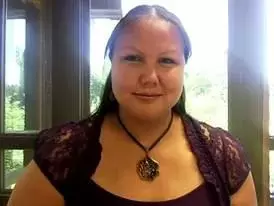More effective training is needed to help prepare police officers for the cultural complexities of First Nations communities, according to the leaders of Nuu-chah-nulth nations.
Last fall Nuu-chah-nulth delegates expressed their views to representatives from the Civilian Review Complaints Commission for the RCMP, an independent government agency that investigates grievances from the public against the national police force. Michelle Cameron, a senior investigator with the agency, and Jason Galloway, who manages the complaints commission’s B.C. office, attended the Nuu-chah-nulth Tribal Council’s Annual General Meeting on Sept. 26 at Maht Mahs to address leaders from the Vancouver Island nations.
Galloway noted that often RCMP officers go through online cultural training before taking a post in a First Nations community.
“I think anyone would benefit from in-person training rather than online,” he said. “It’s one of the things we’ve looked at. I’ve taken online training; you click your way through it.”
Cameron added that the officers who serve on reserves are usually straight out of training with limited experience.
“They do limited duration posts where they’re here for two, three years and then they switch up,” she said.
Ucluelet First Nation President Les Doiron said that while the community currently has a good police officer, a better understanding of life in Nuu-chah-nulth communities would help the service to be more effective.
Cameron mentioned that it can be difficult for the commission to gauge how well a First Nation community is relating to its police service based on feedback from a chief or council.
“The people that usually have a negative experience with police officers are people that are the most marginalized, these are people who have addictions or mental health issues, or criminality,” she said. “These [traits] often increase the likelihood of having that negative interaction with police that perhaps chief and council are not having.”
For a police service to be effective, it’s essential for a First Nation to have trust in the RCMP, said Tseshaht Elected Councillor Eunice Joe.
“On the health side we have many of our nations, many of our individuals, who are not seeking the medical care they need because of negative experiences, and I think we could probably say the same on the RCMP side,” she said. “It’s about relationships and understanding others’ lived experience.”
Galloway said that the role of the complaints commission is to enhance public trust in the RCMP, including for those living on a reserve.
“A lot of people have fears of going to a detachment and lodging a complaint because it’s a small community - people live together, their kids play together - and people are concerned of animosity that may happen,” he said.
The Civilian Review Complaints Commission for the RCMP can be contacted by telephone at 1-800-665-6878 or online at www.crcc-ccetp.gc.ca.







